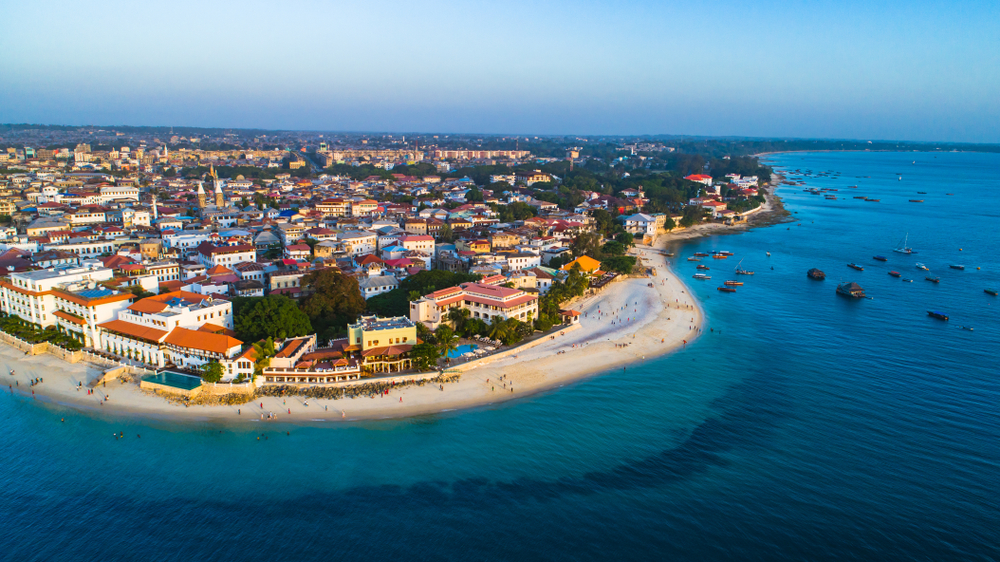Zanzibar, the enchanting Island off the coast of Tanzania, has long been known for its stunning beaches, rich history, and vibrant culture. However, in recent years, the Island has faced numerous challenges related to rapid tourism development, negative environmental impacts, and cultural dilution.
Recognizing the need for change, Zanzibar is taking a bold step towards sustainable island tourism by hosting the Eco-Tourism Summit in February 2024. The Eco-Tourism Summit aims to bring together key stakeholders from the tourism industry, government officials, environmentalists, and local communities to discuss and strategize how to develop Zanzibar’s tourism industry sustainably. It is a crucial event that sets the path forward for the Island’s future, ensuring that tourism is economically viable and environmentally and socially responsible.
Branded as “Z – Summit 2023”, this international tourism summit is scheduled for February 23 and 24 next year. It has been organized jointly by the Zanzibar Association of Tourism Investors (ZATI) and Kilifair, the leading tourism exhibition organizers in Northern Tanzania.
Zanzibar’s high-level tourism and travel trade business and investment gathering has been organized to strengthen the growth of the tourism industry on the Island, display investment opportunities and exhibit the Island’s tourism for investors and operators in the sector.
ZATI Chairman Rahim Mohamed Bhaloo said that the Z – Summit 2023 will boost the growth of the tourism sector on the islands, aiming to raise the number of tourists booked to visit the Island to reach 800,000 by 2025. Mr. Bhaloo noted that the Z-Summit 2023 will expose the Island’s rich tourist resources and marine, cultural, and historical heritages.
The event aims to boost the Island’s aviation sector by attracting more airlines from Africa and the rest of the world to fly there. Zanzibar had attracted Rwanda’s national airline, RwandAir, to launch direct flights between its Kigali hub and the Indian Ocean Island to boost regional and intra-African travel and tourism. Zanzibar depends more than 27 per cent (27%) of its annual Gross Domestic Product (GDP) on tourism.
One of the primary focuses of the summit is to address the environmental challenges that Zanzibar faces. The Island’s delicate ecosystems, including its coral reefs and mangrove forests, have been threatened by the rapid increase in tourism activities.
Unregulated construction, pollution, and overfishing have led to the degradation of the natural resources that attract tourists in the first place. The summit will explore innovative solutions to protect and restore these vital ecosystems, including the implementation of marine protected areas and sustainable fishing practices.
Moreover, the summit will delve into the issue of waste management, a pressing concern for Zanzibar. As the number of tourists has risen, so has the amount of waste generated, putting a strain on the Island’s infrastructure and delicate ecosystems. Finding sustainable solutions to manage and dispose of waste is essential to preserve the beauty and cleanliness of Zanzibar’s beaches and marine life.
Collaborative efforts between the government, tourism industry, and local communities will be vital in implementing effective waste management practices, including recycling, reducing plastic usage, and developing proper waste disposal systems.
In addition to environmental challenges, the summit will also address social and cultural sustainability. As tourism has grown, so has the pressure on Zanzibar’s unique cultural heritage. The conference will focus on finding ways to promote and preserve local traditions while also ensuring that cultural experiences are respectful and authentic for tourists.
This includes supporting local artisans, promoting community-based tourism initiatives, and educating visitors about the Island’s history and cultural significance. By involving local communities in decision-making processes and empowering them economically, tourism can become a tool for positive social and cultural change.
Furthermore, the summit recognizes the importance of responsible tourism practices in benefiting the local economy. Sustainable tourism not only preserves the environment and culture but also creates job opportunities and improves the livelihoods of local communities.
By encouraging responsible tourism development, Zanzibar can ensure that economic benefits are shared equitably and that tourism contributes to poverty reduction and sustainable development. This includes promoting small-scale businesses, empowering women and youth through tourism-related activities, and encouraging tourists to support local products and services.
The Eco-Tourism Summit will also provide a platform for knowledge sharing and capacity building. Experts worldwide will share their experiences and best practices in sustainable tourism development, providing valuable insights that can be applied to Zanzibar’s context. Workshops, panel discussions, and networking opportunities will enable stakeholders to learn from each other, forge partnerships, and develop action plans for a sustainable future.
While the Eco-Tourism Summit is a significant step forward, its success ultimately relies on the commitment and collaboration of all stakeholders involved. The government must enforce and update regulations to ensure sustainable tourism practices are followed, while the tourism industry must integrate sustainability into its operations and provide tourists with responsible choices.
Local communities should actively participate in decision-making processes, ensuring their voices and needs are heard. Finally, tourists themselves, by making conscious choices and being respectful of the environment and communities, can contribute to the success of sustainable tourism in Zanzibar.
Zanzibar’s Eco-Tourism Summit in February 2024 represents a turning point for the Island’s tourism industry. By addressing environmental, social, and economic challenges, the summit paves the way for sustainable island tourism. With careful planning, collaboration, and a shared vision, Zanzibar can become a model for responsible tourism, where the Island’s beauty and people’s well-being are preserved for generations to come.
You can also read on Zanzibar’s Energy Future: Oil as a Catalyst for Development.


How can one participate?